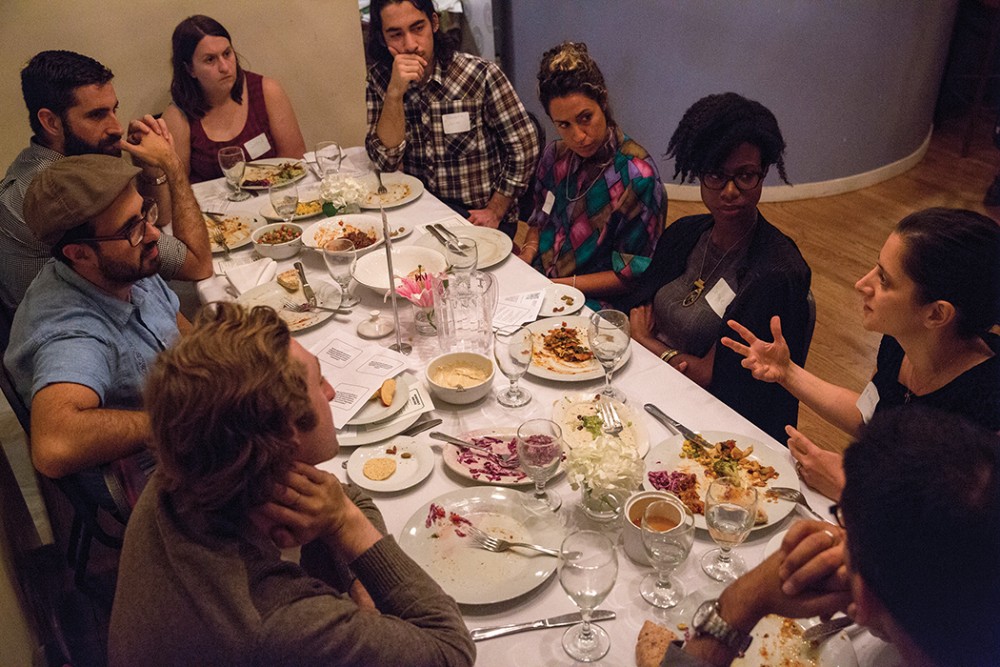At The People’s Supper, strangers explore common ground
The idea is disarmingly simple: all you need is a dinner table.

Shortly after the 2016 presidential election, African Methodist Episcopal minister Jennifer Bailey decided that people who had been bruised by the election needed a place where they could be “real people.” As she told her friend Lennon Flowers, people needed a place where they could be more than “talking points or data or voting records.”
Bailey and Flowers had met through a network of young ministers, religious leaders, and community organizers. Just out of college, Flowers had founded an organization called the Dinner Party to help young people who had experienced a significant loss connect with others who had a similar experience. Bailey had founded the Faith Matters Network to support young clergy, especially clergy of color, working in community development.
The two women talked about how people needed a place where the conversation could move beyond political differences—and a place to heal from the wounds and grief inflicted by the election. Out of that conversation, Flowers and Bailey came up with the idea of holding small gatherings around a dinner table. They consulted with a colleague, Emily May, who had founded an organization called Hollaback! to work on issues of harassment. Bringing together their different kinds of expertise, they launched the project #100days100dinners and put together a conversation guide using ideas from Parker Palmer’s Center for Courage and Renewal and from Flowers’s experience with the Dinner Party. They publicized the idea on social media, encouraging people to consider hosting either a “healing supper” or a “bridging supper.”




